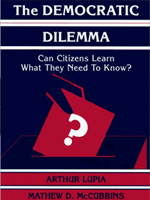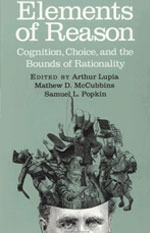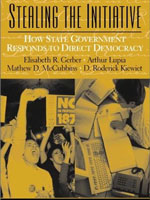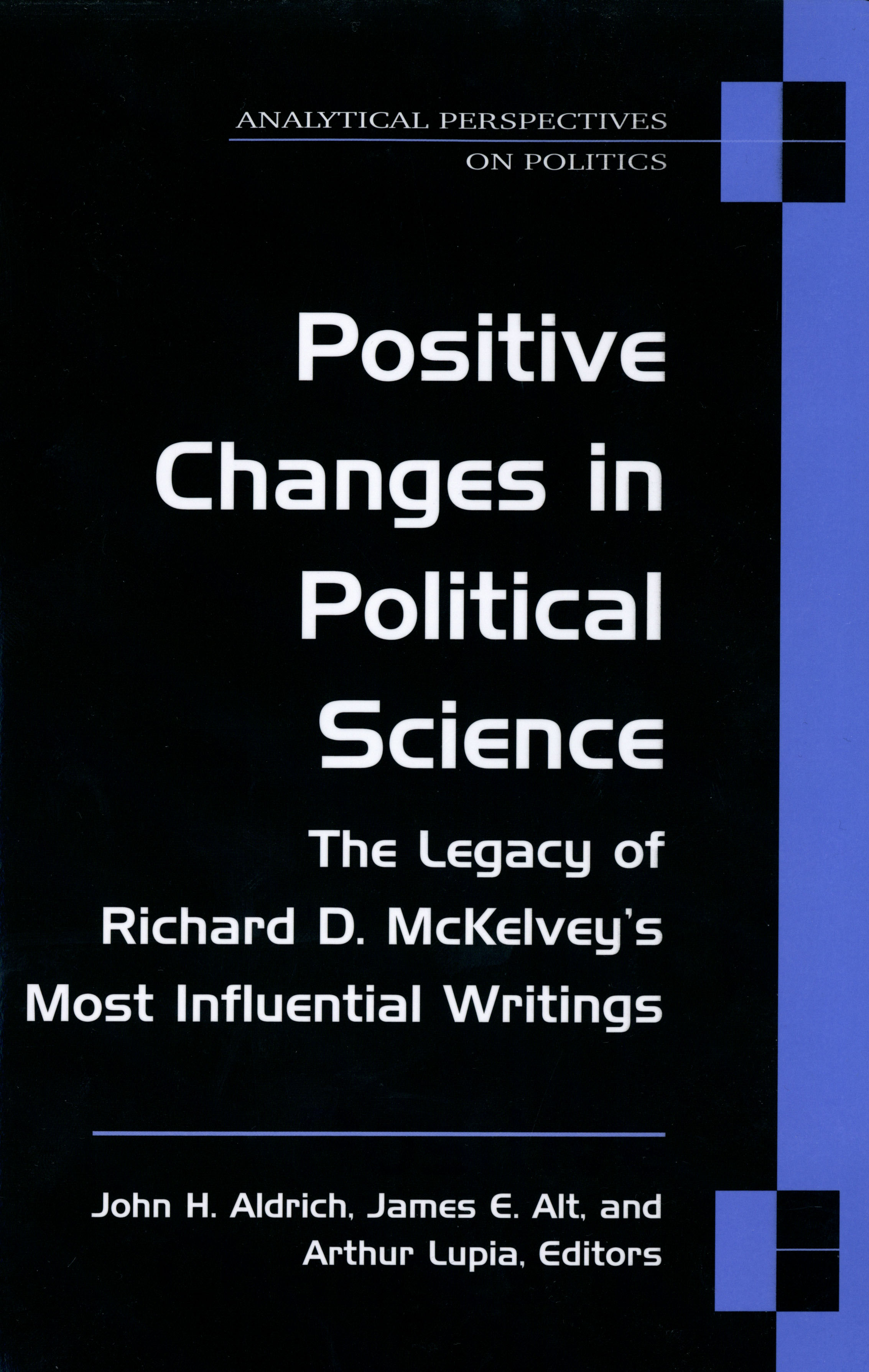|
 Most citizens seem underinformed about politics. Many experts claim that only well-informed citizens can make good political decisions. Is this claim correct? The Democratic Dilemma combines insights from political science, economics, and the cognitive sciences to explain how citizens gather and use information. They show when citizens who lack information can (and cannot) make the same decisions they would have made if better informed. As a result, they clarify the debate about citizen competence. Most citizens seem underinformed about politics. Many experts claim that only well-informed citizens can make good political decisions. Is this claim correct? The Democratic Dilemma combines insights from political science, economics, and the cognitive sciences to explain how citizens gather and use information. They show when citizens who lack information can (and cannot) make the same decisions they would have made if better informed. As a result, they clarify the debate about citizen competence.
[Data Available Here.]
 Many social scientists want to explain why people do what they do. A barrier to constructing such explanations used to be a lack of information on the relationship between cognition and choice. Now, recent advances in cognitive science, economics, political science, and psychology have clarified this relationship. In Elements of Reason, scholars from across the social sciences use these advances to uncover the cognitive foundations of social decision making. They answer tough questions about how people see and process information and provide new explanations of how basic human needs, the environment, and past experiences combine to affect human choices. Many social scientists want to explain why people do what they do. A barrier to constructing such explanations used to be a lack of information on the relationship between cognition and choice. Now, recent advances in cognitive science, economics, political science, and psychology have clarified this relationship. In Elements of Reason, scholars from across the social sciences use these advances to uncover the cognitive foundations of social decision making. They answer tough questions about how people see and process information and provide new explanations of how basic human needs, the environment, and past experiences combine to affect human choices.
 This book uses eleven recent California initiatives and referendums to provide readers with a set of analytical tools and examples that will help them better understand real politics. It clarifies the public consequences, and studies the great variations of what happens to initiatives that win on Election Day and withstand judicial review. Research is presented in an effective and efficient manner, along with key factors that lead policy actors to implement and enforce initiatives and referendums fully, partially, and not at all-a social phenomenon that affects our lives in fundamental ways. A wide range of policy areas cover tobacco tax, transportation, legislative spending provision, term limits provision, open primaries, and bilingual education. This book also includes varied conclusions about how to reform the initiative process to improve direct democracy. For citizens who want to understand and/or increase their role in government. This book uses eleven recent California initiatives and referendums to provide readers with a set of analytical tools and examples that will help them better understand real politics. It clarifies the public consequences, and studies the great variations of what happens to initiatives that win on Election Day and withstand judicial review. Research is presented in an effective and efficient manner, along with key factors that lead policy actors to implement and enforce initiatives and referendums fully, partially, and not at all-a social phenomenon that affects our lives in fundamental ways. A wide range of policy areas cover tobacco tax, transportation, legislative spending provision, term limits provision, open primaries, and bilingual education. This book also includes varied conclusions about how to reform the initiative process to improve direct democracy. For citizens who want to understand and/or increase their role in government.
 Richard D. McKelvey was a pioneer in the use of mathematical modeling for understanding the nature of political choices. Positive Changes in Political Science brings together his most important articles, accompanied by original essays from contemporary political scientists, some his colleagues or students, who reflect upon his contributions, their continuing relevance today, and their impact on future research. Richard D. McKelvey was a pioneer in the use of mathematical modeling for understanding the nature of political choices. Positive Changes in Political Science brings together his most important articles, accompanied by original essays from contemporary political scientists, some his colleagues or students, who reflect upon his contributions, their continuing relevance today, and their impact on future research.
 A Japanese version of "The Democratic Dilemma" was published in 2005 by Bokutakusha Press in Tokyo. Translation by Masahiro Yamada. A Japanese version of "The Democratic Dilemma" was published in 2005 by Bokutakusha Press in Tokyo. Translation by Masahiro Yamada.
[Data Available Here]
|








